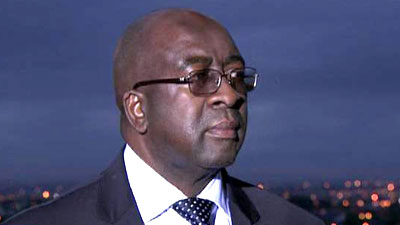Unlike the previous budget speeches, this year’s speech comes at a time when South Africa, like other nations, is expected to demonstrate that it is on track to achieve the eight Millennium Development Goals (MDG’s).
These include eradicating extreme poverty and hunger, achieving universal primary education and promoting gender equality through empowering women by 2015.
Admittedly, achieving these goals has not been an easy task for many developing nations including ours which continue to face high unemployment, a shrinking tax base, rising debt, a growing budget deficit and stubborn negative balance of payments.
With regards to some of these MDG’s, South Africa has made tremendous progress as we are now recognised as one of the countries with a decent record of promoting gender equality, reducing child mortality, achieving universal primary education and combating diseases such as HIV/Aids.
Unlike other developing nations, we face problems such as a widening gap between the rich and the poor, low productivity levels, load shedding and widespread protests which are blamed for our low levels of economic growth.
And there is the rub for Finance Minister Nhlanhla Nene as he prepares to deliver this year’s budget speech.
Pressure is mounting on the ruling party to do more to deliver not only on electoral promises but also MDG’s
In the 20 years following the end of apartheid, the African National Congress (ANC) government has consistently faced very high expectations from its core constituency of poor black voters.
Fresh from the 2014 elections, in which the ruling ANC won just over 62% of the vote down from the high 60’s, the pressure is mounting on the ruling party to do more to deliver not only on electoral promises but also MDG’s.
Over the past two decades, a significant amount of government attention has been devoted to dealing with poverty, inequality, high unemployment and racial divisions which continue to pose a serious threat to social cohesion.
One of the pro-poor policies of the government has been to provide social grants, empower black people through Black Economic Empowerment (BEE) and invest heavily in infrastructure development with the hope of reducing high unemployment.
However, the biggest problem is that in recent years, the number of people receiving grants has rapidly grown to well over 15 million, with some people deserving of grants and others not so deserving.
With the tax base shrinking owing to job losses in mining, textile and other sectors of the economy, the question is: Can government afford to sustain this growing expenditure without doing something to expand the tax base through providing incentives for business to create decent work in the labour intensive sector while improving the skills base to make the capital intensive sector more globally competitive?
In recent years, the government has had to deal with the rapidly growing number of protests which are becoming more violent and destructive, suggesting that poor people are growing impatient.
Just last year, protests in mining and other sectors cost the economy billions in export earnings.
These labour protests, together with the so-called service delivery protests taking place in many urban areas around the country and in some rural areas, have come at a huge cost.
While some of these service delivery protests are legitimate, others are not.
To make matters worse, we have seen university students protest almost every year in the past decade.
Most of these students’ protests range from inadequate funding for poor students to indecent accommodation and safety issues.
The question now is: What can be done to stop these protests because they undermine skills development, give the country a bad image and potentially discourage both local and foreign investments needed to stimulate economic growth?
Another big question is: How can government sustainably pursue pro-poor policies such as rolling out social grants alongside significant investments in people so as to expand access to decent work, grow the economy and raise incomes?
It is widely agreed that a fast growing economy is a necessary condition for reducing high unemployment and ensuring sustainable human development.
But our economy continues to grow at a snail’s pace with productivity levels also becoming a growing cause for concern among business people.
There are a number of ways in which we can turn things around.
One way is for all of us to cultivate a sense of responsibility for our future and inculcate a self-reliance so as to discourage the culture of relying heavily on the state to provide – a recipe for a nanny state.
Zakhele Ndlovu is a Political Analyst and Political Science lecturer at the University of KwaZulu-Natal (UKZN).
– By Zakhele Ndlovu, Political Analyst


